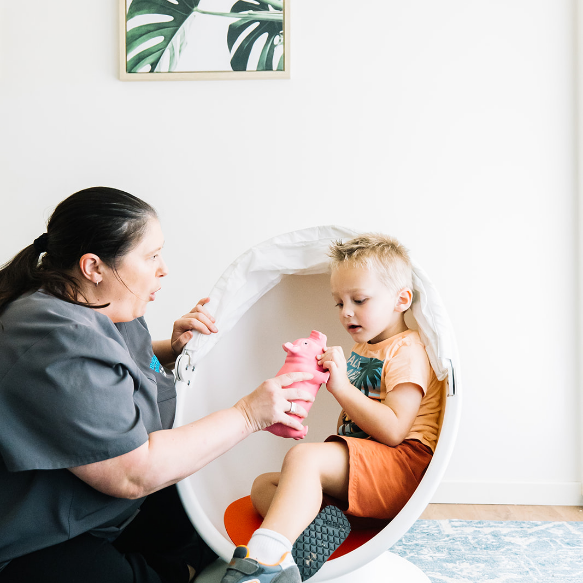Comprehensive Assessments
This is a comprehensive assessment of an individual’s strengths and needs and considers their association with possible underlying diagnoses through interviews, interactions, observations and data-based assessment tools.
Comprehensive evaluation.
Gain a clear picture of your child’s skills in various aspects of social interactions including playing, learning, speaking, behaving, and moving.
Functional assessment.
Identifies underlying developmental, intellectual, and mental health diagnoses and how they may impact your child’s daily life.
Identifying areas of difficulty.
Thorough report and detailed recommendations are discussed to improve daily functioning and available supports.

Comprehensive assessments can support caregivers in better understanding their child’s development and behaviour, inform suitable academic and community placements, and highlight supports and interventions that may be of benefit to them, regardless of the diagnostic outcome.
Who it's for...
This assessment is for children aged 12months to 18 years who display signs of autism, or complex social, communication, mood, or behavioural difficulties.
What to Expect
This is a complex assessment and is scheduled over a period of a few weeks. The assessment includes:
- comprehensive parent interview,
teacher, educator, or additional carer interview, - parent and teacher questionnaires
- observation in a naturalistic setting (typically school or daycare),
- cognitive assessment,
in-clinic play- or activity- based assessment with the child which can take up to 60 minutes - final assessment parent meeting
Additional assessments of neurodiversity, mood, mental health, speech and language, literacy, and specific learning disabilities can be completed. If you are interested in these, please discuss this with the psychologist at the parent interview.
After the Assessment
On completion of the assessment, the psychologist will analyse the data and write a comprehensive report of the findings including recommendations. During the final assessment parent meeting, the psychologist will talk you through the findings of the assessment and individualised recommendations with you. This is a great opportunity to discuss next steps.
Part of an individualised therapy program
Everyone develops differently, therefore there is no one size fits all to therapy and intervention. We will use the information from this assessment to identify where your child’s existing strengths, alongside new strategies, and tools that can be used to support areas of challenge.